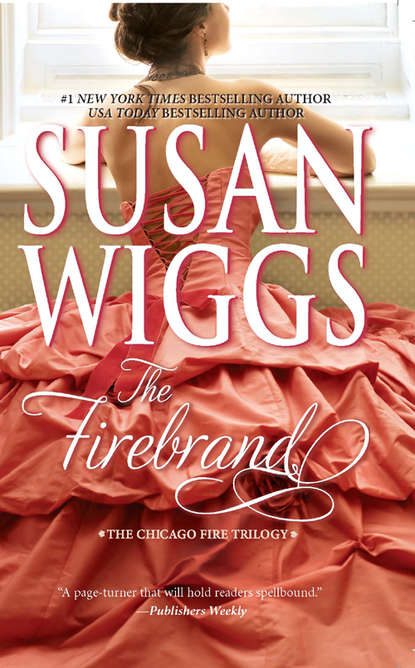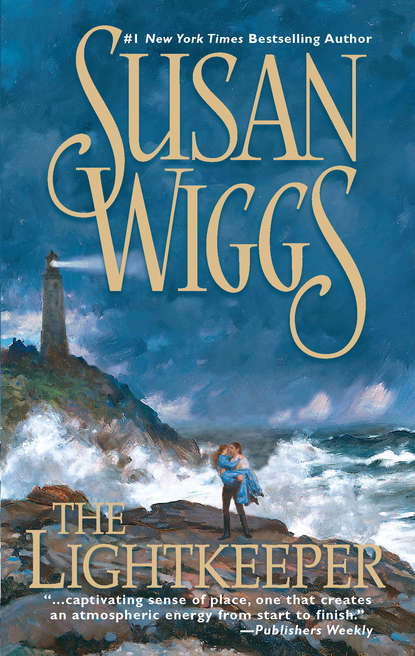
Полная версия
The Winter Lodge


Acclaim for New York Times bestselling author Susan Wiggs
“this is a beautiful book”
—Bookbag on Just Breathe
“… Unpredictable and refreshing, this is irresistibly good.”
—Closer Hot Pick Book on Just Breathe
“… Truly uplifting …”
—Now Book of the Week
“A human and multi-layered story exploring duty to both country and family”
—Nora Roberts on The Ocean Between Us
“Susan Wiggs paints the details of human relationships with the finesse of a master.”
—Jodi Picoult
“The perfect beach read”
—Debbie Macomber on Summer by the Sea
Also by Susan Wiggs
The Lakeshore Chronicles
SUMMER AT WILLOW LAKE
THE WINTER LODGE
DOCKSIDE
SNOWFALL AT WILLOW LAKE
FIRESIDE
LAKESHORE CHRISTMAS
The Tudor Rose Trilogy
AT THE KING’S COMMAND
THE MAIDEN’S HAND
AT THE QUEEN’S SUMMONS
Contemporary
HOME BEFORE DARK
THE OCEAN BETWEEN US
SUMMER BY THE SEA
TABLE FOR FIVE
LAKESIDE COTTAGE
JUST BREATHE
All available in eBook
The Winter Lodge
Susan Wiggs

www.mirabooks.co.uk
In loving memory of my grandparents, Anna and Nicholas Klist.
ACKNOWLEDGEMENTS
The author wishes to thank the Port Orchard Brain Trust: Kate Breslin, Lois Dyer, Rose Marie Harris, P. J.
Jough-Haan, Susan Plunkett, Sheila Rabe and Krysteen Seelen. Also thanks to the Bainbridge Island Test Kitchen: Anjali Banerjee, Sheila Rabe, Suzanne Selfors and Elsa Watson. As always, thanks to Meg Ruley and Annelise Robey of the Jane Rotrosen Agency, and to Margaret O’Neill Marbury of MIRA Books.
Special thanks to Joan Vassiliadis, Anna Osinski of Warsaw, Poland, Matt Haney, Bainbridge Island Chief of Police, and to Ellen and Mike Loudon of Bainbridge Bakers on Bainbridge Island, Washington.
Kolaches for Beginners
It’s funny how so many bakers are intimidated by yeast. They see it listed as an ingredient in a recipe, and quickly flip the page. There’s no need to fear this version.
This particular dough is quite forgiving. It’s elastic, resilient and will make you feel like a pro. As my grandmother, Helen Majesky, used to say, “In baking, as in life, you know more than you think you know.”
Basic Kolaches
1 tablespoon sugar
2 packets active dry yeast (which is kind of a pain, since yeast is sold in packages of three)
1/2 cup warm water
2 cups milk
6 tablespoons pure unsalted butter
2 teaspoons salt
2 egg yolks, lightly beaten
1/2 cup sugar
6-1/4 cups flour
1-1/2 sticks melted butter
Put yeast in a measuring cup and sprinkle 1 tablespoon sugar over it. Add warm water. How warm? Most cookbooks say 105°-115°F. Experienced cooks can tell by sprinkling a few drops on the inside of the wrist. Beginners should use a thermometer. Too hot, and it’ll kill the active ingredients.
Warm the milk in a small saucepan; add butter and stir until melted. Cool to lukewarm and pour into a big mixing bowl. Add salt and sugar, then pour in beaten egg yolks in a thin stream, whisking briskly to keep eggs from curdling. Then whisk in yeast mixture.
Roll up your sleeves and add flour a cup at a time. When the dough gets too heavy to stir, mix with your hands. You want the dough to be glossy and sticky. Keep adding flour and knead until the dough acquires a sheen. Put dough ball in an oiled mixing bowl, turning it to coat. Cover with a damp tea towel and set in a warm place where the air is very still. In about an hour, the dough should double in size. My grandmother used to push two floured fingertips into the top of the soft mound, and if the dimples made by her fingers remained, she would declare the dough risen. And then, of course, you give it a punch to deflate it. A soft sighing sound, fragrant with yeast, indicates the dough’s surrender.
Pinch off egg-size portions and work these into balls. Place on oiled baking sheets, several inches apart. Let them rise again for 15 minutes and then use your thumb to make a deep dimple in each ball for the fruit filling. The exact filling to use is a source of endless debate among Polish bakers. My grandmother never entered into such a debate. “Do what tastes good” was her motto. A spoonful of raspberry jam, peach pie filling, fig preserves, prune filling or sweet cheese will do.
Create a popsika by mixing 1/2 cup melted butter with a cup of sugar, 1/2 cup flour and a teaspoon cinnamon. Sprinkle the popsika over each kolache. Now place the pans in a warm place—like above the fridge—and allow to double in bulk again, about 45 minutes to an hour. Meanwhile, preheat the oven to 375°F. Bake 20-40 minutes, until golden brown. Pay particular attention to the bottoms, which tend to burn if too close to the heat source.
Take the kolaches out of the oven, brush with melted butter and remove from pans to cool. This recipe makes about three dozen.
My grandmother used to tell me not to worry about how long this whole process takes. Baking is an act of love, and who cares how long love takes?
One

Jenny Majesky pushed away from her writing desk and stretched, massaging an ache in the small of her back. Something—perhaps the profound silence of the empty house—had awakened her at three in the morning, and she hadn’t been able to get back to sleep. She’d worked on her newspaper column for a while, hunched over her laptop in a ratty robe and fuzzy slippers. At the moment, though, she was no better at writing than she was at sleeping.
There was so much she wanted to say, so many stories to put down, but how could she cram the memories and kitchen wisdom of a lifetime into a weekly column?
Then again, she’d always wanted to write more than a column. Much more. The universe, she realized, was taking away all her excuses. She really ought to get started writing that book.
Like any good writer, Jenny procrastinated. Idly, she picked up her grandmother’s wedding band, which had been lying in a small china dish on the desk. She hadn’t quite decided what to do with it, a plain circle of gold that Helen Majesky had worn for fifty years of marriage and another decade of widowhood. When she baked, Gram always slipped the ring into the pocket of her apron. It was a wonder she never lost it. She’d made Jenny promise not to bury her with it, though.
Twirling the ring around the tip of her forefinger, Jenny could picture her grandmother’s hands, strong and firm as they worked a mound of dough, or gentle and light as they caressed her granddaughter’s cheek or checked her forehead for fever.
Jenny slid the ring onto her finger and closed her hand into a fist. She had a wedding ring of her own, given and received with a sense of giddy hope but never worn. It now resided in a bottom drawer she never opened.
It was hard, at this velvet-black hour, not to tally up her losses—her mother, who had walked away when Jenny was small. Then Jenny’s grandfather, and finally, and perhaps most importantly, Gram.
Only a few weeks had passed since she’d laid her grandmother to rest. After the initial flurry of sympathy calls and visits, a lull had settled in, and Jenny felt it in her bones—she was truly alone. Yes, she had caring friends and coworkers who were as dear to her as family. But now the steady presence of her grandmother, who had raised her like a daughter, was gone.
Out of habit, she saved her work on the laptop. Then she wrapped her robe more snugly around her and went to the window, pressing close to the cold glass to look out at the deep winter night. Snow erased all the sharp edges and colors of the landscape. In the middle of the night, Maple Street was entirely deserted, washed in the gray-white glow of a single street lamp in the middle of the block. Jenny had lived here all her life; she’d stood countless times at this very spot, expecting … what? For something to change. To begin.
She gave a restless sigh, her breath misting the window. The snow flurries had thickened to flakes, swirling in a blur around the streetlight. Jenny loved the snow; she always had. Staring out at the blanketed landscape, she could easily picture herself as a child, hiking with her grandfather to the sledding hill. She used to literally follow in his footsteps, leaping from one hollowed-out bootprint to the next, pulling the Flexible Flyer on a rope behind her.
Her grandparents had been there for all the moments of her childhood. Now that they were gone, there was no one to hold the memories, to look at her and say, “Remember the time you …”
Her mother had left when Jenny was four, and her father was a virtual stranger she’d met only six months ago. Jenny considered this a blessing in disguise. From what she knew of her biological parents, neither had been as well-equipped to raise a child as Helen and Leo Majesky.
A noise—a thud and then a scratching sound—made her jump, startling her from her thoughts. She cocked her head, listening, then decided it had been thick snow or a row of icicles, falling from the roof. You never knew how quiet a house could be until you were totally alone in it.
Since her grandmother had died, Jenny had been waking up in the middle of the night, her mind full of memories begging to be written down. All of them seemed to emanate, like the smells of baking, from her grandmother’s kitchen. Jenny had kept a diary or journal nearly all her life, and over the past few years, her habit had evolved into a regular column for the Avalon Troubadour, a mingling of recipes, kitchen lore and anecdotes. Since Gram’s passing, Jenny could no longer check a fact with her, or pick her brain about the origin of a certain ingredient or baking technique. Jenny was on her own now, and she was afraid that if she waited too long, she’d forget things.
The thought stirred her into action. She’d been meaning to transcribe her grandmother’s ancient recipes, some of them still in the original Polish, written on brittle, yellowed paper. The recipes were stored in the pantry in a latched tin box that hadn’t been opened in years. Ignoring the fact that it was now three-thirty in the morning, Jenny headed downstairs. When she stepped into the pantry, she was struck by an achingly familiar smell—her grandmother’s spices and the aroma of flour and grain. She stood on tiptoe to reach the old metal box. Sliding it off the shelf, she lost her balance and dropped the thing, its contents exploding at her fuzzy-slippered feet.
She uttered a word she never would have said when Gram was alive, tiptoeing gingerly as she tried not to step on any of the fragile old documents. Now she would need a flashlight, because the dark pantry didn’t have a light. She found a flashlight in a utility drawer but its batteries were dead and there wasn’t another fresh battery in the house. She considered lighting a candle but didn’t want to have a mishap with the one-of-a-kind handwritten recipes. Leaning against the kitchen counter, she rolled her eyes heavenward. “Sorry about that, Gram,” she said.
Her gaze found the smoke detector. Aha, she thought. She dragged a kitchen chair over to it and climbed up, opening the smoke detector, removing its two double-A batteries and fitting them in the flashlight.
She headed back into the pantry, gently picking up the papers, which rustled like dry autumn leaves. She put the loose papers in the box and brought it out to the kitchen. There were old notes and recipes in her grandmother’s native Polish. On the back of a yellowed page with crumbling edges, she spotted a signature in fading, delicate strokes of ink—Helenka Maciejewski—practiced a dozen times in a girlish hand. That was her grandmother’s married name before it had been Anglicized. She must have written it as a young bride.
There were things about her grandparents Jenny would never know. What had it been like for them, as newlyweds barely out of childhood, leaving the only home they knew to start a life half a world away? Were they frightened? Excited? Did they quarrel with each other, cling to each other?
She closed her eyes as a now-familiar onslaught of panic started in her stomach and pushed through her, pressing at her chest. These panic attacks were something brand-new for Jenny, a grim and unexpected development. The first one struck at the hospital as she was moving woodenly through the duties of the next of kin. She’d been signing some form or other when the fingers of her left hand went numb and she dropped the pen to clutch her throat.
“I can’t breathe,” she’d told the clerk. “I think I’m having a heart attack.”
The doctor who treated her, a tired-looking resident from Tonawanda, had been calm and compassionate as he evaluated her and then explained the condition. Not uncommon, the intense attack was a physical response to emotional trauma, the symptoms as real and frightening as they would be for any illness.
Since then, Jenny had become intimately familiar with the symptoms. Practical, levelheaded Jenny Majesky was not supposed to succumb to something as uncontrollable and irrational as a panic attack. She was helpless to stop it now as a singularly unpleasant sensation rose through her, like a parade of spiders climbing up her throat. Her heart seemed to expand in her chest.
She cast a wild look around, wondering where she’d left the bottle of pills the doctor had given her. She hated the pills almost as much as she hated the panic attacks. Why couldn’t she just snap out of it? Why couldn’t she just suck it up and calm herself with a cup of strong coffee and a taste of her grandmother’s apricot-jam kolaches?
That, at least, could be a diversion. Right now, in the middle of the night. One of the few places in Avalon where she could find someone awake at four in the morning was the Sky River Bakery, founded in 1952 by her grandparents. Helen specialized in ko-laches filled with fruit or sweet cheese, and pies that became the stuff of local legend. Her baked goods were in demand from the restaurants and small specialty shops that lined the town square, catering to the well-polished tourists who came up from New York City for Avalon’s cool green summers or blazing fall color.
Now Jenny was the bakery’s sole owner. She dressed hurriedly, layering on fleece long underwear, checked chef pants and a thick wool sweater, tall warm boots, a ski jacket and hat. No way was she driving, not before the snowplow had made its rounds. Besides, getting the car out of the garage would entail shoveling the driveway, something she was heartily sick of doing. The bakery was just six blocks away, on the main square in the center of town. She’d be there in minutes. Maybe the exertion would stave off the panic attack, too.
Just in case, she found her bottle of pills and stuffed it in her pocket.
Grabbing her purse, she walked through frozen silence. The snow had stopped, and the clouds made way for the stars. New snow squeaked beneath her feet as she followed a route she’d walked since she was a tiny girl. She’d grown up in the bakery, surrounded by the heady fragrance of bread and spices, the busy sounds of the mixers and sheeters, timers going off, rolling racks clattering out to the transport bay.
A single light burned over the back entrance. She let herself in, stomping the snow from her boots. Outside the spotless prep area, she took them off and slipped on her baker’s clogs, which were parked on a rack by the door.
“It’s me,” she called, her gaze tracking around the work area. It was immaculate as always, with fifty-pound sacks of freshly milled flour stacked precisely against one wall, honey in 155-gallon drums lying on their sides nearby. Specialty ingredients displayed in clear containers lined the shelves from floor to ceiling—millet, pine nuts, olives, raisins, pecans. The stainless-steel refrigerators, ovens and countertops shimmered under the pendant lights, and the rich scent of yeast and cinnamon filled the air. Three 6 Mafia was blaring from the radio, indicating that Zach was on tonight, and between the beats of the hip-hop music, she could hear the hum of the spiral mixer.
“Yo, Zach,” she called out, craning her neck to find the boy.
He emerged from the mixing area, pushing a rolling cart filled with raw dough. Now a senior in high school, Zach Alger had worked at the bakery for two years. He didn’t seem to mind the early-morning hours, always heading to school with a bag of fresh pastries. He had distinctly Nordic features—pale blue eyes, white-blond hair—and lanky, earnest good looks. “Is anything wrong?” he asked.
“Couldn’t sleep,” she said, feeling a bit sheepish. “Is Laura around?”
“Specialty loaves,” he said, gesturing as he wheeled the tub of dough toward the six-foot-tall proofing cabinet.
Laura Tuttle had worked at the bakery for thirty years, as master baker for twenty-five. She knew the business even better than Jenny did. She claimed to love the early hours, that the schedule was perfectly suited to her circadian clock. “Well, look who’s here,” she said, yet she didn’t glance up as she spoke.
“I had a craving for a kolache.” Jenny swished through the rubber-rimmed swinging doors to the café, where she helped herself to a cup of coffee and a day-old pastry from the case. Then she returned to the prep area, welcoming the familiar taste but feeling no calmer. Out of habit, she grabbed an apron from a hook.
Jenny rarely did the hands-on work; as owner and general manager, she stayed busy in a supervisory and administrative capacity. She had an office upstairs with a view of the town square, and a security monitor gave her a glimpse of the café counter. She spent most days juggling the needs of employees, suppliers, customers and regulatory agencies with a phone glued to her ear and her eyes glued to the computer screen. But sometimes, she reflected, you just had to roll up your sleeves and dive in. There was no sensation quite like plunging one’s hands into a warm mass of silky dough. It felt like something half-alive, squishing through her fingers.
Now she slipped the apron over her head and joined Laura at a worktable. The specialty breads were done in smaller batches and shaped by hand. Today’s selections would be a traditional Polish bread made with eggs, orange peel and currants, and a savory herb loaf of Laura’s invention. She and Laura worked side by side, weighing portions of dough on a one-pound scale, although both knew the size by feel alone.
Across the room, Jenny could see the refrigerated pie case, filled with her grandmother’s pies. Technically speaking, these were not Helen Majesky’s pies. But the original recipes for the lofty lemon meringue, the glossy three-berry tarts with the lattice tops, the creamy buttermilk chess pie and all the others came from Helen herself, decades ago. Her techniques had been passed on from one master baker to the next, and now, even after her death, she haunted the bakery as gently and sweetly as she had lived.
Jenny felt curiously detached from herself as she braided the dough into fat, rounded loaves. She looked at her white, floury hands and could see her grandmother’s hands, lifting and turning the dough with a patient rhythm that seemed to come from a place Jenny didn’t recognize in herself. The reality of Gram’s passing settled in Jenny’s bones. It had been three weeks, two days and fourteen hours. Jenny hated that she knew, practically down to the precise moment, exactly how long she had been alone.
Laura kept working, setting each oiled loaf in a pan, one by one. She bobbed her head along with the hiphop rhythm coming from the radio. She actually liked Zach’s music, though Jenny suspected Laura didn’t listen too closely to the lyrics.
“You miss her a lot, don’t you, doll?” Laura asked. She was the kind of person who knew things, like a mind reader.
“So much,” Jenny admitted. “And here I thought I was prepared. I don’t know why I feel shell-shocked. I’m not good at this. In fact, I’m terrible at it. Terrible at mourning the dead and at living alone.” She squared her shoulders, tried to shake off the mingling of panic and melancholy. The scary thing was, she couldn’t do it. She had somehow lost control, and even as she felt herself falling apart, she couldn’t do anything to make it stop.
Somewhere outside in the dark, a siren wailed. The noise crescendoed, sounding frantic, like a scream. A couple of dogs howled in response. Automatically, Jenny turned to peer through the double doors to the window of the darkened coffee shop. The town of Avalon, New York, was small enough that the sound of whooping sirens at night attracted notice. In fact, the last time she remembered hearing a siren was when she had called the paramedics.
They had not let her ride with her grandmother. She had driven her car in the wake of the ambulance to Benedictine Hospital in Kingston. Once there, she begged her grandmother to rescind the DNR order she’d signed after her first stroke, but Gram wouldn’t hear of it. So then, with her grandmother’s life force ebbing, there was nothing left for Jenny to do but say goodbye.
She felt a fresh wave of the panic attack trying to push its way to the surface. She stuck with the kneading rhythm her grandmother had taught her, working the dough with steady assuredness. Anyone watching her would see a competent baker, because she knew that on the outside, she appeared no different. The gathering steam inside was invisible.
“I’m going to step out back, grab a breath of fresh air,” she told Laura.
“I just heard sirens. Maybe Loverboy will show up.”
Loverboy was Laura’s nickname for Rourke McKnight, Avalon’s chief of police. He had a reputation that did not go unnoticed in a town this size. Jenny, of course, avoided calling him anything at all. There had been a time when she and Rourke had not been strangers. In fact, they’d known each other with searing intimacy, but that was long ago. They hadn’t willingly exchanged a word in years. Rourke dropped by the bakery for his morning coffee every day, but since Jenny worked in the office upstairs, they never crossed paths. They actually both worked hard at not crossing paths.
Avoiding him required that she memorize his routine. During the week, he kept office hours like any chief of police, but, thanks to a tight municipal budget, he had to make do with substandard pay and a force that was small even by small-town standards. He often took the third watch on weekends, driving patrol like any beat cop. Sometimes he even drove a snowplow for the city. Jenny pretended she didn’t know any of this, pretended to take no interest in the life of Rourke McKnight, and he returned the favor by ignoring her. He had sent flowers to her grandmother’s funeral, though. The message on the card had been typically taciturn: “I’m sorry.” It had accompanied a bouquet the size of a Volkswagen.
As she slipped on her parka and ducked through the back door of the bakery, Jenny felt the now-predictable pattern of the attack. There was the terrible tingling of her scalp, an army of invisible ants marching up her spine and over her head. Her chest tightened and her throat seemed to close. Despite the freezing temperatures, she broke out in a sweat. Then came the eerie pulsations of light, flickering in her peripheral vision.












